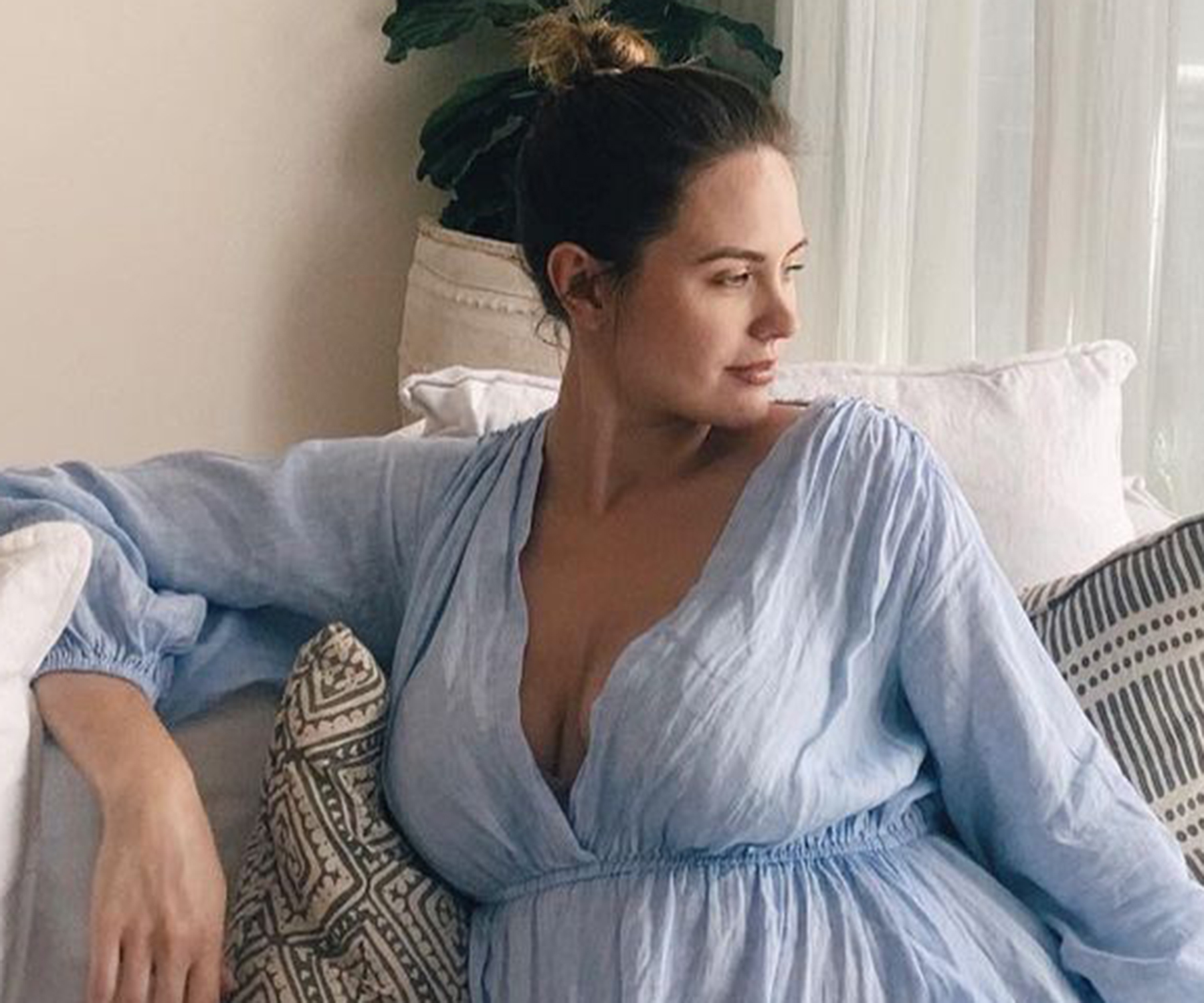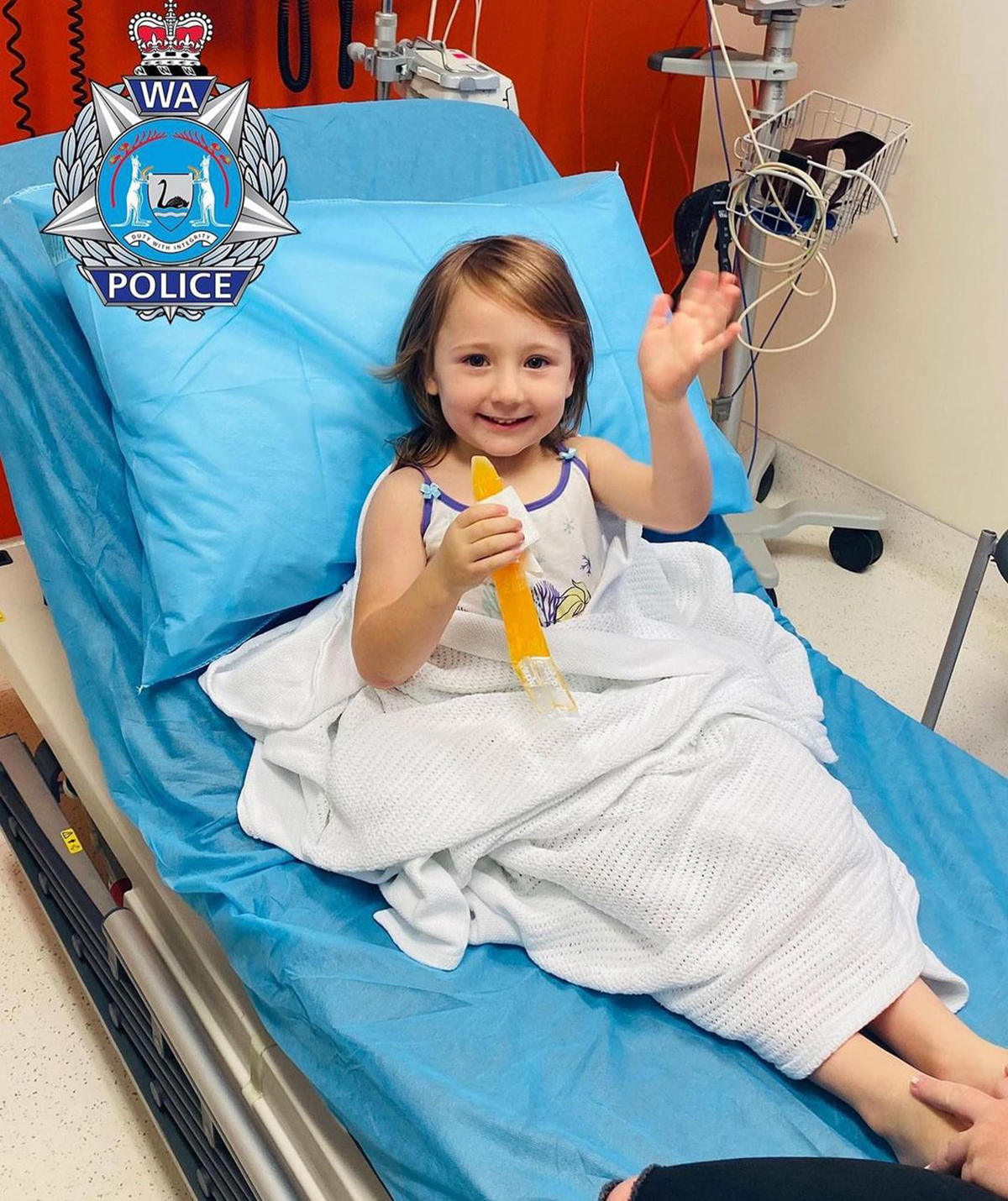Jesinta Franklin has reiterated her recent comments about missing Indigenous children, following the news that missing WA child Chloe Smith had been found.
The 30-year-old took to Instagram when the news broke last week to share her joy that the four-year-old had been reunited with her family, but also spread an important message.
In a since-deleted Instagram Story, Jesinta noted that Australia – the public, media and police – responds differently to missing white children and missing Indigenous children.
The mum-of-two said that she didn’t want to take away from the “joy” of Cleo being found, but felt it was important to “think about the disparity” in visibility and coverage of missing white and Indigenous children.

Jesinta Franklin, a dedicated mum of two, has drawn attention to the families of missing Indigneous children who feel a painful lack of support.
(Instagram)“I have read so many heartbreaking stories of missing Indigenous children that garner hardly any media coverage or the social media attention that a case like Cleo’s did,” Jesinta penned.
“Posting this because I think we need to do better for all children who go missing and their families.”
Her thought-provoking statement certainly had an impact, as the model took to Instagram on Sunday night with a series of follow-up statements.
She first thanked the people who “engaged in meaningful conversations” around the topic, before saying: “Confronting and often forgotten topics like this are important to continue to talk about.

Jesinta highlighted the disparities in the way the Australian public, police and media respond to missing white children and missing Indigenous children.
(Instagram)“I received an outpouring of messages about the lack of action and media attention for not only missing children, regardless of ethnicity, have an equal presence in the media and that articles to come, give voice to this disparity and injustice.”
Jesinta emphasised that her these conversations don’t “take away from anyone else’s story or pain”, but that they’re incredibly important, especially in the wake of Cleo’s case.
The dedicated mum added that she has posted about the disparity in how the media and police respond to missing white and Indigenous children before but few people paid attention.
With the recent media coverage of Cleo’s case and outpouring of support for the families of missing children in mind, she decided to raise the topic again in the hopes of spreading awareness and education.
“I have had an influx of people reach out to me saying they had no idea about the statistics or that this issue even existed,” Jesinta wrote.
“This is not the first and won’t be the last time I speak up and shine a light on issues of equality and injustice.”
She went on to share websites and videos about how the families of missing Indigenous children can face more barriers when seeking help from authorities, and how that can – in some cases – lead to devastating outcomes.
Jesinta isn’t the only Australian shining a light on these issues, and the disparity between how police and the public react to white and Indigenous missing children have been documented.
Almost 20 per cent of missing children between the ages of 13 and 17 are Indigenous, ABC reports.
A 2021 University of New South report showed that 70 per cent of missing youth reports are children living in out-of-home care and more than a third of those are Indigenous children.
But academics say we rarely see missing Indigenous children in the news the way we saw Cleo’s case, which dominated headlines for days.
Journalist Amy McQuire is a Darumbal and South Sea Islander woman, and is researching how the media represents violence against Indigenous women as part of a postgraduate degree.

Australia rejoiced when Cleo Smith was found last week.
(Instagram/WA Police)“These are really complicated cases that aren’t seen as newsworthy because the media aren’t actually looking at the issues and the violence of issues like child protection,” she told ABC.
“The media is not following up cases that are important to blackfellas because they’re not seen as cases that are going to grip the nation.”
If you or someone you know has been affected by any of the issues raised in this article, help is always available. Call Lifeline on 13 11 14.
.jpg)
.jpg)
.jpg)